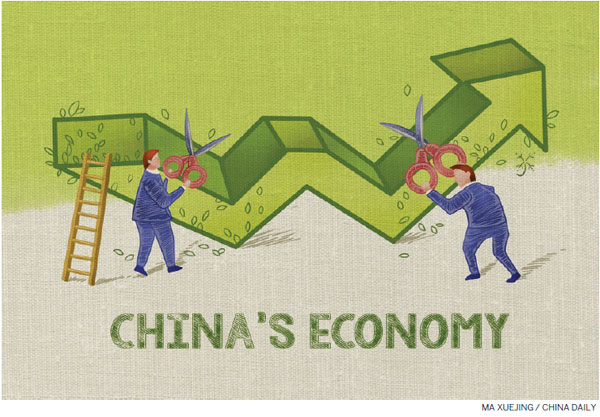Golden opportunity to embrace green growth
By Manish Bapna (China Daily) Updated: 2016-03-16 08:01
Will China make concrete progress toward its vision of a more inclusive and sustainable society in 2016, rebalancing its economy to better address the related challenges of eradicating poverty, reducing inequality and protecting the environment?
A clear course has been set by three international agreements reached in 2015-the first in Addis Ababa on finance for sustainable development, the second in New York on a set of global goals to eradicate extreme poverty, and the third in Paris on climate change. These agreements have set forth a bold, new vision for how the world can tackle these challenges. As President Xi Jinping has said, after unprecedented economic expansion since 1990, China now needs to embrace a new economic model that focuses more on the quality rather than the quantity of growth. Will the 13th Five-Year Plan (2016-20) be able to deliver this?
On combating climate change, China has already made its plans known with its declared goal of peaking carbon dioxide emissions by 2030. It also aims to increase its share of non-fossil sources in its primary energy consumption to 20 percent while reducing carbon intensity by 60 to 65 percent from 2005 levels. China could signal its commitment to climate action by setting more stringent caps on coal consumption and production, expanding its program of low carbon provinces and cities and turning its carbon-trading pilot program into a national emissions trading system, as expected by 2017.
Recent news reports suggest China has set a target of reducing its carbon intensity by 18 percent from 2015 levels by 2020, beyond its 2009 goal, this target could help China reach its goal of peaking carbon emissions by 2030 or earlier.
On finance, China needs to make its financial system more environmentally sustainable if it is to embark on a new model of high-quality economic growth. So will China's government send clear signals to shift investment to resource-efficient growth and pollution control, moving from "business as usual" to green finance?
A new report from the China Council for International Cooperation on Environment and Development recommends that China launch a national green development fund, develop long-term sources of finance by promoting green bonds and support the development of a green finance risk guarantee mechanism, including environmental liability insurance. When it hosts the G20 summit in Hangzhou, Zhejiang province, in September, China can provide real leadership to encourage central banks and finance ministries to enable the global financial system to more easily support green investment.

I’ve lived in China for quite a considerable time including my graduate school years, travelled and worked in a few cities and still choose my destination taking into consideration the density of smog or PM2.5 particulate matter in the region.











